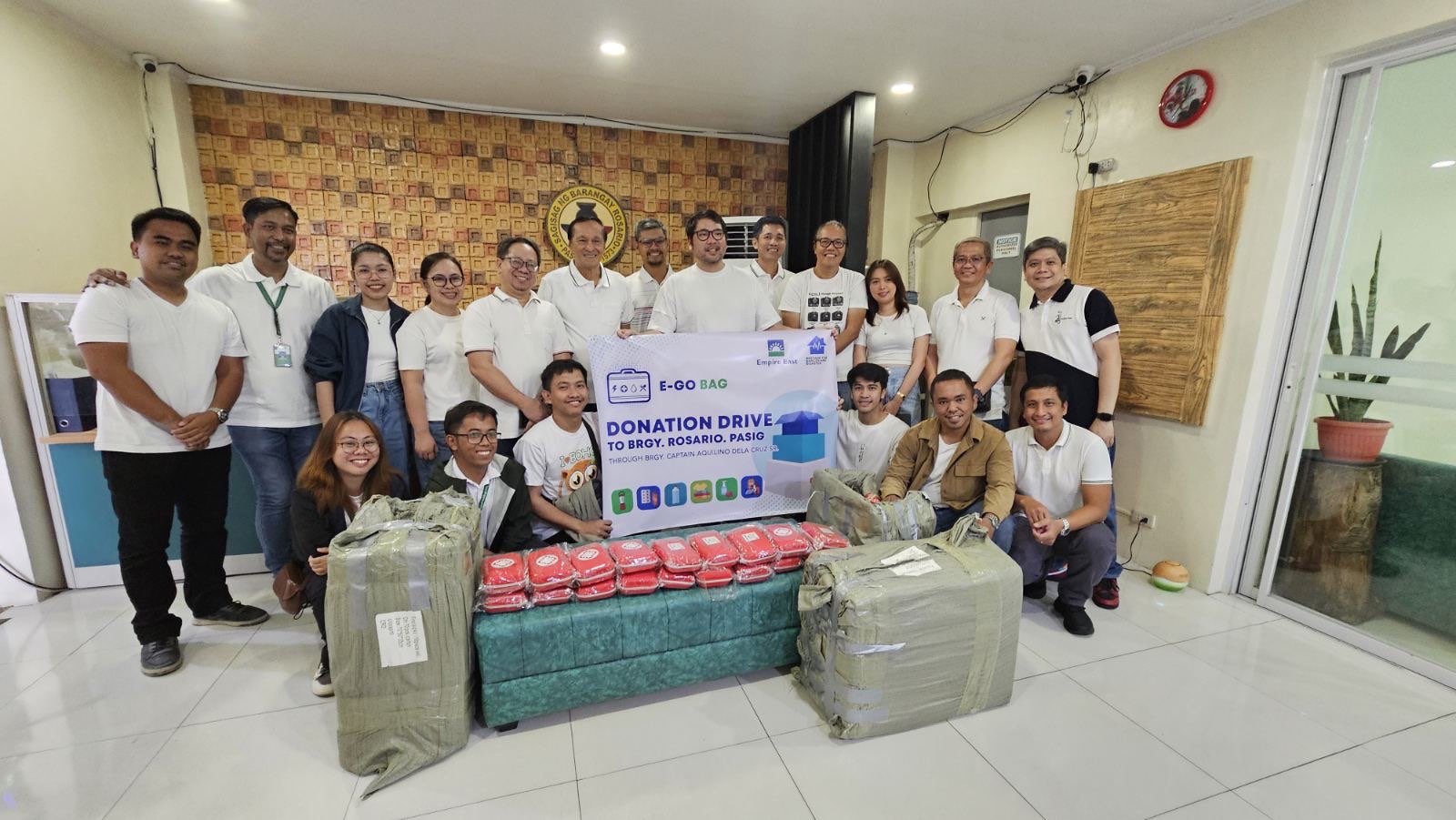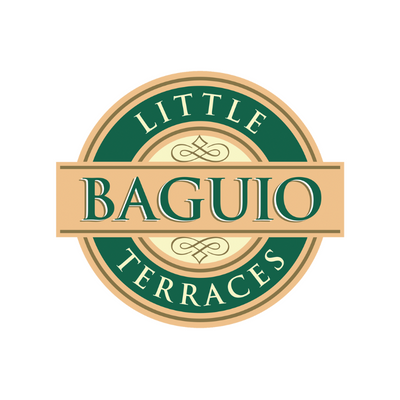Summary: In response to the devastating impact of the recent typhoon, particularly in Pasig City's Barangay Rosario, Empire East's Property Development Division (PDD) stepped up with a significant relief effort. On November 8, 2024, Empire East organized a donation drive in partnership with Barangay Captain Aquilino "Ely" Dela Cruz Sr. and his dedicated team. The volunteers distributed Emergency Go Bags (E-GO Bags) to affected residents, equipping them with essential resources to prepare for future emergencies. The distribution event was held at the Barangay Hall of Rosario, Pasig City.
The Philippines faces around 20 typhoons each year, which bring heavy rains, strong winds, and risks of flooding, landslides, and storm surges that impact communities and farmland. With climate change heightening these risks, our country prioritizes disaster preparedness and resilience. Yet, building disaster resilience requires more than government action; it's a shared responsibility. This is where Public-Private Partnerships (PPPs) become essential. These projects enable local governments and businesses to strengthen communities and improve disaster response.
Empire East has always been supportive of these disaster reduction efforts. For instance, high-rise condo living offered more protection during typhoons, blocking solid winds and providing height to homeowners, helping relieve families from the repercussions of flooding.
Nevertheless, we acknowledge that many in Metro Manila remain vulnerable. While the government continues implementing risk reduction practices, some efforts need acceleration. Empire East's Property Development Division saw this need and quickly partnered with local government units to strengthen community building and relief efforts.
With the recent typhoons that the Philippines faced, cities and provinces were inundated by flash floods, impacting the lives of millions nationwide. In the aftermath, over 9.6 million people—amounting to 2.4 million families—found themselves struggling. Pasig is one of the cities in Metro Manila that Typhoon Kristine considerably hit.
In response to the typhoon's onslaught, Empire East's Property Development Division (PDD) organized a donation drive on November 8, 2024. Partnering with Barangay Captain Aquilino "Ely" Dela Cruz Sr. and his team, Empire East distributed Emergency Go Bags (E-GO Bags) to residents, helping them prepare for future emergencies. The distribution event took place at the Barangay Hall of Rosario, providing vital resources to a community that faced severe flooding and transportation challenges.
E-GO bags encourage preparedness during unexpected events such as floods and earthquakes. Each bag has essential supplies—like first-aid kits, flashlights, alcohol pads, ice packs, sterile gauze pads, and bandages—that can be vital during emergencies. These readily available items empower residents to respond quickly and safely when disaster strikes, potentially reducing the risk of injury and helping families stay connected and secure in unexpected situations.
Empire East understands that public-private partnerships (PPPs) play a crucial role in building disaster resilience and strengthening the nation as a whole. With this vision, the company is dedicated to forming partnerships with government agencies to create change.
Through these collaborations, Empire East provides resources that improve safety and foster a proactive approach, empowering communities to stay prepared and resilient in the face of future challenges.
Looking ahead, FVP for Property Development, Arminius Madridejos said that the department is committed to expanding its support for community welfare by providing similar programs to other areas.
This commitment underscores Empire East's mission to build homes and resilient, connected communities ready to face future challenges together. Empire East has remained dedicated to supporting community needs through its Empire East Cares program, which was launched a few years back to respond to the calamity caused by typhoon Ondoy. Since then, the company has formed a culture of volunteerism, offering employee-led partnerships with local government units to extend help when they can.












































 Empire East Highland City
Empire East Highland City
 The Paddington Place
The Paddington Place
 Mango Tree Residences
Mango Tree Residences
 Kasara Urban Resort Residences
Kasara Urban Resort Residences
 Covent Garden
Covent Garden
 The Rochester
The Rochester
 Pioneer Woodlands
Pioneer Woodlands
 Little Baguio Terraces
Little Baguio Terraces
 San Lorenzo Place
San Lorenzo Place








